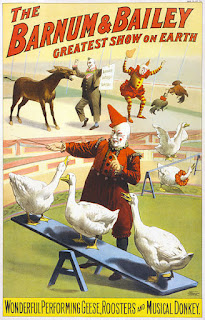Expected on full display off the coast of Ireland this week will be a contrast of values. With the deadly armaments of war-gamers potentially endangering Irish fishermen, it is real values and not pretense that will be clear to the world.
The war-gamers are set to fire naval artillery and rockets 150 miles off the Irish coast in international waters, but within the Irish exclusive economic zone (EEZ). Pat Murphy and his fellow fishermen have caught the attention of many worldwide, for promising to do what they've always done on the first of February–namely, work the fishing grounds off the coast of Ireland, from the start of the season.
What's clear already is that when Pat Murphy says he's not moving aside for war-gamers, you'd better believe it. He and a fellow fisherman made this known, armed only with maps of the fishing grounds, during a visit with the war-gamers' ambassador to Ireland.
Unsurprisingly, the two parties' readouts of this meeting, which were later given to the media, were different concerning a key undertaking–with the ambassador's public statement contradicting his private guarantee of safety given to Murphy. Mr Murphy reportedly responded that he takes the ambassador's public comment as "a threat and an insult." As my Irish grandfather quipped more than once, there are no degrees of honesty.
As with most events of this type that involve devotees to war who are reported in the media, the slippery treatment of truth, half-truth, and myth will keep evolving as the coming week(s) unfold. This casual relationship with truth of warmongers, and war-gamers also apparently, was evident even before the first edition in 1975 of Phillip Knightley's revelatory The First Casualty: The War Correspondent as Hero, Propagandist and Myth-Maker from the Crimea to Iraq.
It's to be hoped the war-gamers might temporarily escape their own view of the world to know that an Irish fisherman named Pat Murphy will keep his word–he and his compatriots will be fishing and "not moving aside," when the war-gamers commence their dangerous maneuvers on Thursday, local time.
Just how many generations of Murphy families have fished off the Irish coast isn't clear. And which Murphy family would you be talking about, you might ask.
Population experts would likewise have a hard time guessing the scale of various extensions of the Murphy families and their countryfolk throughout the world. Estimates based on the rates with which Irish migrants in this country and elsewhere marry out of the Irish community, and extend the sharing of Irish values, would give some idea of this. Yet another clue could be the readership of books about Ireland, including How the Irish Saved Civilization–which tend to fly off the shelves of bookshops and libraries.
What the world is seeing many will consider a further repeat of what Sir Winston Churchill acknowledged as a "sorry history" of the Emerald Isle, so often subjected to intimidation and, in earlier times, invasion!
Whatever happens this week, many millions within and beyond Irish families, in a great many countries worldwide, will feel unity with Mr Murphy and his fellow fishermen.
[FOOTNOTE UPDATE, February 1, 2022: The Irish Echo has reported "...the Russians have now said that they will relocate their naval exercises, though to exactly where is not clear. But they apparently won't now be staged in the Irish EEZ."]


